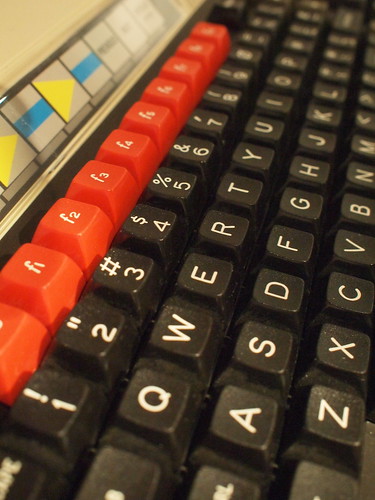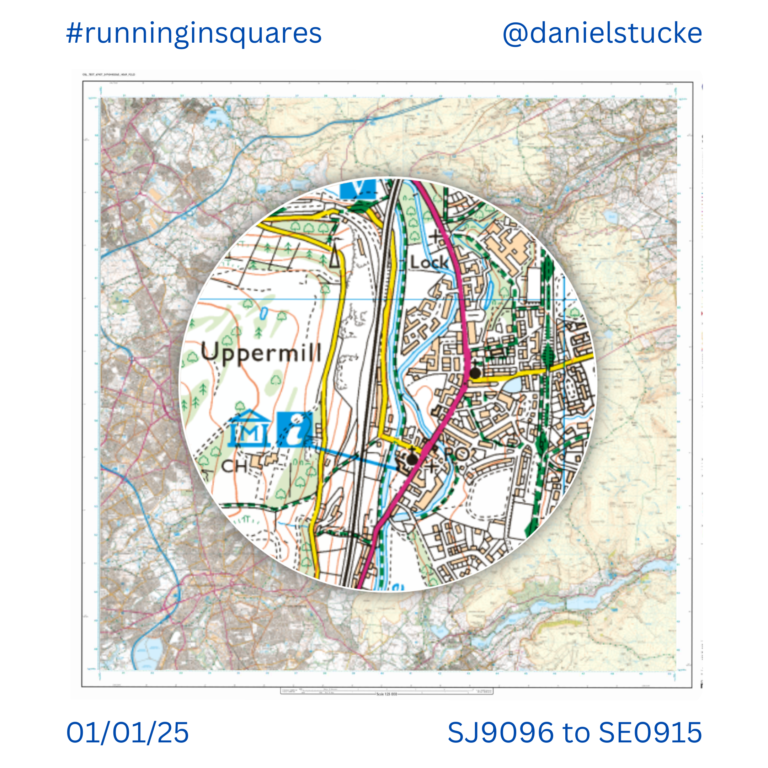Return to Granny’s Garden?
The BBC along with Keri Facer at Manchester Metropolitan University are investigating the idea of a BBC Micro Mk2.0.

For those of you who didn’t grow up in 80’s Britain, the BBC Micro was an Acorn computer, build for the BBC Computer Literacy Project and became the mainstay of early IT in almost every British school. An army of young learners were either taught, or taught themselves the basics of programming using the BBC BASIC language on these machines.
The BBC Micro became a household fixture as well as a school one, featuring educational games such as Granny’s Garden (amazingly still available for sale – yours for £35!), and also the classic Elite, written by David Braben (more of him later).
We live in a World of cycles, and once again, computer literacy and the teaching of ICT is back in focus.
Here’s some of the preface to the cal for responses on the proposed new project:
Today, there is criticism of the ICT curriculum and the teaching of programming (or computational thinking) in schools. The Royal Society, amongst others, believe that design and delivery of ICT and computer science curricula in schools is so poor that students’ understanding and enjoyment of the subject is severely limited. In response to this the BBC is exploring the possibility of developing a project with the specific purpose of encouraging an interest in computers, computer science and computer programming amongst young people.
We would like to know your views on what the BBC could do in this area. In particular, what you would see as the desirable equivalent of the BBC Micro and The Computer Programme today? What technologies and processes, what tools and skills would such a project need to develop?
I’m keen to see anything that can help with the modernisation of the ICT curriculum, and anything that can help support our move into teaching Computing as a discrete subject.
Here’s my response to the questions:
What aspects of computational thinking (e.g. understanding how ‘computers think/work’, using programming languages, understanding systems thinking or other issues) should a BBC Micro 2.0 project focus on? What do you think people should be able to learn to do with computers today? Why?
Key areas that the current curriculum lacks focus upon are understanding the procedural nature of how a computer program works – hardware control, and an opportunity to learn to program. It would seem logical that a BBC Micro 2.0 project would be purely software based. If programming is to be at it’s core then a decision on whether to use an existing language, a modification of one, or a completely new language will have to be made. Two possible avenues would be a programming language that outputs HTML5 ‘programs’ – this would allow the widest possible distribution of programs, including on mobile devices. Another would be a programming language sitting on a Rasberry Pi device. This would have the bonus of being a complete hardware/software package at a very low price.
What are the best ways to support and encourage those young people (aged 9-14) with an interest in this area, to develop their interest and skills in computational thinking ? Can you suggest any examples of resources or activities that you know of?
Games design is the top way to engage with young people interested in computational thinking. Software packages such as Scratch & Kodu offer an excellent way in to early programming concepts. Games such as Lightbot offer a very early and accessible introduction. Code Academy is an interesting new development and a great way for young learners to get an introduction to programming without teacher support.
What are the best ways to support and encourage young people (aged 9-14) with other interests to develop an interest in and understanding of computational thinking? Can you suggest any examples of resources or activities that you know of?
See above, again, games offer the biggest ‘hook’ for young learners. Kodu would be the best example of a way of enticing otherwise uninterested young learners into computational thinking.
What are the key obstacles to learning computational thinking and how might these best be overcome?
Curriculum time, curriculum, qualifications and assessment. Until computational thinking is written deeply into the National Curriculum, or the NC is itself massively reduced, it will not be a priority in schools and will not get the class time that it needs to be developed. Hopefully the NC review will lower the total prescribed content, reduce the emphasis on software use such as MS Office and increase the emphasis on computational thinking. It would also be nice to see if brought to the fore in the Maths curriculum, at the expense of some of the less useful skills that currently exist there.
If you were to make hardware available to schools in the same way as the BBC Micro in 1981, what sorts of hardware would you think was essential to develop the skills and understanding needed?
Rasberry Pi looks like the perfect idea for a new generation of BBC Micro-esque hardware. It seems to be building a positive head of steam in the run up to it’s launch. BBC support of this project would surely help it succeed and the link with David Braben is almost poetic. Hardware needs to be mobile. A software only solution that works on a wide variety of platforms would make most sense. As discussed above, something that output HTML5 would make most sense.
If you were designing a tv programme today that sought to have the same effect as The Computer Programme in stimulating interest in the most important new area of technological development, what area would you expect it to address and what topics would you expect it to cover? Would it still be in the field of computer science? What areas?
A show that involved learners, with a strong online presence and with inspirational guests and challenges. You could run online challenges to write programs to solve a certain problem, or along a certain theme. The best of these could be invited to some kind of studio show where they compete to be a winner, maybe with judges from the relevant industry.
Do you know of any projects, resources and activities that would be examples that this project could learn from?
See above. Kodu, Scratch, Code Academy (& Khan Academy as a model), Rasberry Pi, Lightbot.
Do you have any other comments on the idea of a new BBC Micro project?
BBC support of computational thinking would be hugely positive, this has to be a priority area in UK education (see Nesta report & our journey). A software solution that offers young learners something close to the instant gratification of Scratch or Kodu whilst giving transferable skills to more formal languages would be hugely positive. As would support of the Rasberry Pi project.
Photo Credit to psd on Flickr: http://www.flickr.com/photos/psd/5435967638/
